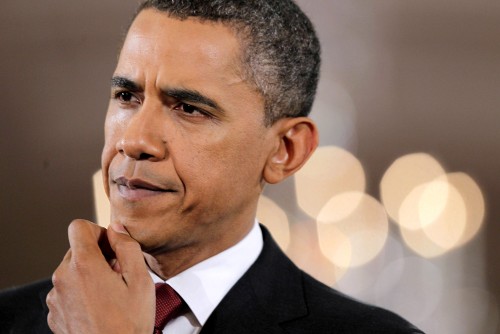Race Still an Issue for Some US Voters

Race was a hot topic during the 2008 presidential election. As Barack Obama gained momentum, it became clear that history could be made. By the end of the election, it had - Obama was elected as the first African American president in the history of the United States.
As President Obama now runs for re-election, it begs the question: Is race still an issue for some voters?
An article in the New York Times drew attention to the role of race in winning over parts of the country made up of mostly white, working-class residents who are struggling economically. This demographic, often comprised of unionized workers, usually vote Democrat without fail. In places like Ohio, the New York Times points out, presidential candidate John Kerry won by a considerable margin. Barack Obama, on the other hand, barely squeaked by John McCain.
Is this due to race? Is there are sizable portion of the working-class world who will not vote for a man because he is black? For some people in the article, the answer was obvious: Yes. They were certain that their fathers, for example, would have been reluctant to cast a ballot for a black candidate, even a lifetime of voting Democrat. Others felt that race wasn't an obstacle for Obama; if anything, they argued, it helped him secure victory by attracting black voters and, to a lesser extent, young people.
While there may be some merit to those observations, there are other interview quotations found in the article about perceived racial advantage that expose a deeper racism. One individual chalked the increase in black voter turn-out to “black ignorance.” An editorial in the Wall Street Journal pointed out that having such a thought reveals an existing bigotry in the minds of some citizens.
Racism is a difficult topic to discuss, and perhaps even more difficult to quantify, which makes the task of neutrally assessing race as a voting issue very challenging. Most would agree that, after four years in office, Obama has managed to make at least some who were uneasy about him for racial reasons more comfortable with the idea of a black President. In that way, race should be less of an issue in 2012.
However, having a black President in office does not mean that the United States is now “post-racial;” Obama himself made that observation in an interview with Rolling Stone magazine. Race still matters, but it can be difficult to objectively detect where, when, and for whom. Very few people will be forthright about the prejudices they harbor, especially not to interviewers and on the pages of official surveys.
So, is race an issue? Yes, it is safe to say it still plays a role in how voters cast their ballots. It would not be a stretch to think it could be detrimental for Obama in the “Rust Belt” of America, where there are many white, working-class residents who cannot find good work. Race isn't the only issue, though, and for as long as the United States is slogging through difficult economic times, it is unlikely to be the issue at the forefront of most Americans' minds.
--
Guest post contributed by Jordan Rodgers, on behalf of Fugrogeoconsulting.com. Jordan is a geologist. He designs and plans offshore foundations using a range of geotechnical techniques.




